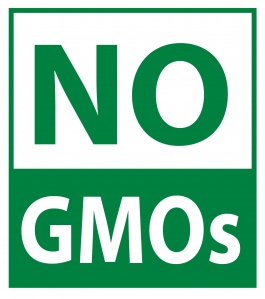What are GMOs?
GMOs, or “genetically modified organisms,” are plants or animals created through the gene splicing techniques of biotechnology (also called genetic engineering, or GE). This experimental technology merges DNA from different species, creating unstable combinations of plant, animal, bacterial and viral genes that cannot occur in nature or in traditional crossbreeding.
GMOs, or “genetically modified organisms,” are plants or animals created through the gene splicing techniques of biotechnology (also called genetic engineering, or GE). This experimental technology merges DNA from different species, creating unstable combinations of plant, animal, bacterial and viral genes that cannot occur in nature or in traditional crossbreeding.
GMOs were introduced to the international marketplace in the 1990s.
GMO in the US
More than 50% of North American production of corn, soybeans and canola now uses transgenic traits (herbicide tolerance or bacillus thuringiensis (Bt) resistance), while milk from the United States (US) is mostly produced with recombinant bovine somatatrophin (rBST), and meat is being produced with various biotechnologically-based growth hormones.
In total, about 80% of processed food products in the U.S. contain genetically modified ingredients, and even genetically engineered whole foods, ranging from tomatoes to papayas, have appeared in American grocery stores.
GMO Labeling in the US
Between 80% and 95% of Americans believe foods with genetically modified ingredients should be labeled. But they’re not. Actually, the US is one of the few industrialized nations that doesn't require labeling of GMO foods. In Europe all products containing more than .9 percent GMO are labeled as such. But in the US, there is no such standard
Consumers today simply cannot know whether they’re eating GMOs unless they buy exclusively organic or seek out products voluntarily labeled “Non-GMO.” But, despite fierce opposition from the biotech industry, this may soon change.
California Flirts with GMO Labeling`
Proponents of GMO labeling are fighting hard to get the measure on the California ballot in 2012 so the masses can let their opinion be known. According to LabelGMOs.org, after the organization turns in the language of the initiative the state can take 40 to 60 days to digest it. And once they get it back, they have 150 days to gather 504,760 qualifying signatures. Experts at LabelGMOS.org think they need between 750,000 and 800,000 signatures to ensure the initiative gets on the ballot. Here's more about their signature gathering campaign.
The measure also has the potential to set a new labeling standard for the rest of the US as well, which could eventually drive GMOs out of the market altogether.
Source :
http://organaholic.com/
http://www.nongmoproject.org/
http://www.treehugger.com/











